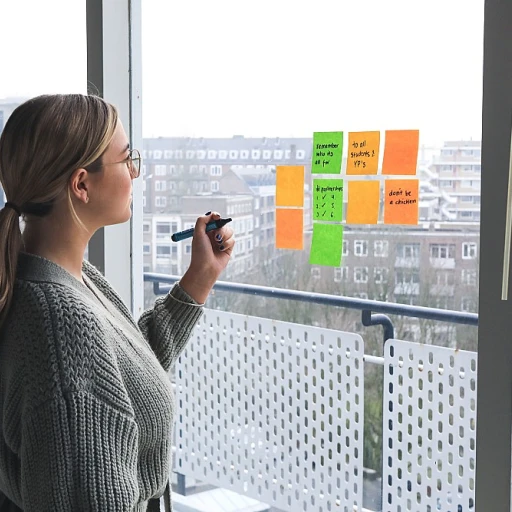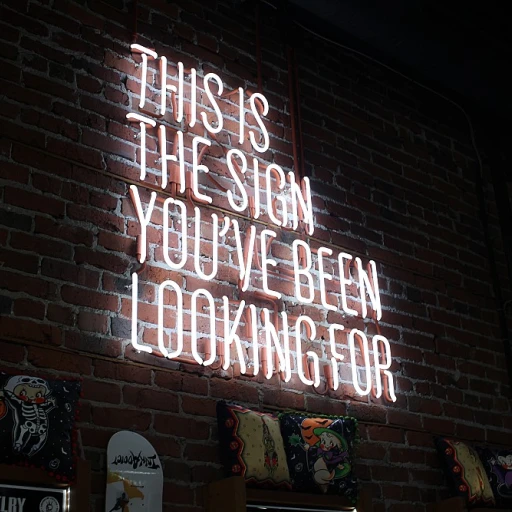
Core Responsibilities of an HRD Manager
Key Tasks and Duties of the HRD Manager
The role of a Human Resources Development (HRD) Manager is pivotal in shaping the workforce of any organization. As a strategic business partner, their core responsibilities revolve around fostering an environment conducive to the growth and development of human resources. This involves a blend of strategic planning and hands-on engagement with various facets of human resource management.
An HRD manager plays a crucial role in the development and execution of training programs, ensuring that employees have the necessary skills to meet business goals. This often includes overseeing programs related to employee training, development, and well-being. By focusing on enhancing employees' skills, they ensure the team aligns with the organization's objectives.
Moreover, it is their job to design comprehensive resource management strategies. This entails proactively identifying skill gaps within the team and implementing human resource solutions such as mentoring or training development. A description of the HRD Manager's role would be incomplete without mentioning their involvement in compensation benefits and employee retention strategies. They need to ensure competitive yet sustainable compensation packages to attract and retain top talent in the industry.
HRD Managers are instrumental in leading their team to success by orchestrating effective hiring practices and collaborating with resource managers. They must frequently revise the job description to reflect the evolving needs of the business. Their senior technical expertise is often crucial in guiding new initiatives and addressing human resource challenges swiftly.
The experience required for this role generally includes a bachelor degree in human resources, business, or a related field, alongside substantial hands-on experience in human resources management positions. Furthermore, mastering the intricacies of resource development can significantly enhance their effectiveness as leaders within the organization.
Essential Skills for Success
Key Competencies Required for Excellence
Navigating the complexities of human resources development (HRD) requires a well-rounded skill set. As an HRD manager, fostering a positive and efficient team environment and driving employee growth are central to your role. Communication and Interpersonal Skills- Effectively communicate with team members, stakeholders, and senior management to ensure the smooth implementation of training programs and HR initiatives.
- Develop strong relationships with employees to better understand their needs and create impactful development strategies.
- Guide your team with clear and decisive leadership to achieve organizational goals aligned with the business strategy.
- Exhibit strategic thinking that connects human resources development with broader business objectives, ensuring that training development initiatives contribute to overall success.
- Use data-driven insights to assess the effectiveness of existing training programs and to devise new approaches to resource development.
- Identify and solve complex issues within the HR scope, contributing to improved processes and outcomes for the organization.
- Manage multiple HRD initiatives simultaneously while ensuring timely and successful completion.
- Utilize project management skills to align resources and actions with the organization’s development strategy.
- Adapt to changing environments and requirements, demonstrating flexibility to cater to diverse operational and cultural needs.
- Promote inclusion and diversity by understanding cultural differences and incorporating them into training development and HR practices.
Navigating HR Job Interviews
Mastering the Art of the HR Interview
Getting through a human resources job interview can be challenging, but understanding the unique dynamics can help you stand out as an exceptional candidate. As an HRD manager, your role involves managing extensive resources development responsibilities and adapting to the specific needs of the organization. To successfully navigate an HR interview, consider the following tips:
- Know Your Job Description: Prioritize familiarizing yourself with the job description. Understand what the hiring manager is seeking in terms of resource management, employee training programs, and compensation benefits. This preparedness will demonstrate your attention to detail and commitment.
- Leverage Your Skills and Experience: Emphasize how your background aligns with the organization's goals. Whether you come from a training development background or perhaps have experience as a senior technical manager, use this to highlight your potential contributions to the team.
- Showcase Business Acumen: An HRD manager must act as a pivotal business partner. Display a keen awareness of how HR can drive organizational success. Discuss your strategic experience in work planning and resource development that improves the business bottom line.
Additionally, it's important to prepare for essential questions that test not just your HR expertise, but also your ability to fit within the company's culture and effectively lead a team.
Common Interview Questions and How to Answer Them
Preparing for Interview Questions
When stepping into an HR job interview, especially for the role of an HRD manager, it's crucial to be prepared for a variety of questions. These questions are designed to assess your understanding of the core responsibilities and essential skills necessary for success in human resources development.- Understanding Job Descriptions: Many interviewers begin with queries about the HRD manager's job description. Familiarize yourself with the typical tasks and responsibilities involved, such as employee training development and resource management.
- Experience with Training Programs: Be ready to discuss your experience with developing and implementing training programs. Highlight any successful initiatives you've led that have contributed positively to your organization's goals.
- Managerial Skills and Leadership: Showcase your managerial skills by providing examples of your leadership within a team. Discuss challenges faced and how you navigated them to drive human resources development and employee engagement.
- Cultural Fit and Organizational Goals: Questions around cultural fit often revolve around how well your values align with the company's mission. Reflect on previous experiences where you've successfully aligned HR strategies with business goals and resource management.
Tips for Structuring Your Answers
- Be Concise: While it's important to be thorough in your responses, clear and concise answers can demonstrate a strong grasp of the topic.
- Use Specific Examples: When discussing your experience, provide specific examples that highlight your skills and achievements.
- Focus on Results: Emphasize the results of your initiatives. For instance, how a training program improved employee performance or contributed to business growth.
The Importance of Cultural Fit
Aligning with Organizational Culture
Understanding the importance of cultural fit within a company is critical when considering a role as an HRD manager. The cultural alignment between you, the potential HRD manager, and the organization significantly influences not only your success but also the overall development and harmony of your team.Organizations often seek managers who reflect their core values and can effectively integrate into their existing business structure. Highlighting your experience and skills that correspond with the organization's mission and values during interviews can place you in a favorable position.
Assessing Cultural Fit
To successfully gauge cultural fit, consider the following aspects:- Company Values and Ethics: Do they align with your personal and professional beliefs? As a manager, projecting these values will be an essential role in team management.
- Work Environment: Ensure that the organizational environment is one where you can thrive, supporting the resource development programs you will be part of.
- Communication Style: Understanding and adapting to the communication dynamics within the organization is crucial for effective resource management and employee training programs.
- Learning and Development Opportunities: Consider if the company values training development. Being part of an environment that prioritizes continuous learning can benefit your long-term career development.
Conveying Cultural Alignment
During an interview, it's beneficial to reflect on how you and the organization share common ground. Here are some ways to demonstrate cultural alignment:- Share Relevant Experiences: Discuss past experiences where your values have driven employee engagement and successfully integrated resources development within a team.
- Highlight Complementary Skills: Focus on skills that will benefit the company's goals, especially in programs related to human resource development.
- Ask Insightful Questions: Inquire about the company’s future direction and how your role could contribute, showcasing your interest in becoming a strategic business partner.
When a candidate is perceived to be a good cultural fit, it not only benefits individual performance but helps to build a cohesive team within the organization. Emphasizing cultural fit in interviews can showcase your potential as a valuable addition to the company’s human resources development.
Post-Interview Follow-Up Strategies
Effective Post-Interview Follow-Up Techniques
After participating in an HR job interview, especially for a role as significant as an HRD manager, many candidates overlook the critical step of follow-up. Following up post-interview can reinforce your interest in the position and keep you top-of-mind among hiring managers.- Express Gratitude: A simple thank-you email sent within 24 hours demonstrates your gratitude and professionalism. Mention specific topics discussed during the interview to personalize your message and remind them of your conversation.
- Reiterate Your Fit: Use this opportunity to briefly restate how your skills and experiences align with the job description and the organization’s goals. Recall elements from discussions about core responsibilities and essential skills that were highlighted in the interview.
- Address Any Gaps: If there were questions or areas you feel you didn’t adequately address, the follow-up is a perfect chance to touch on these points. This might relate to resources management scenarios or team-building experiences that are crucial for a role in human resource development.
- Inquire About Next Steps: While demonstrating your interest, it’s also appropriate to ask about the next steps in the hiring process, without appearing too eager. This could include queries about further interviews, training programs, or expected timeline for feedback.













